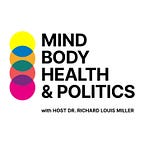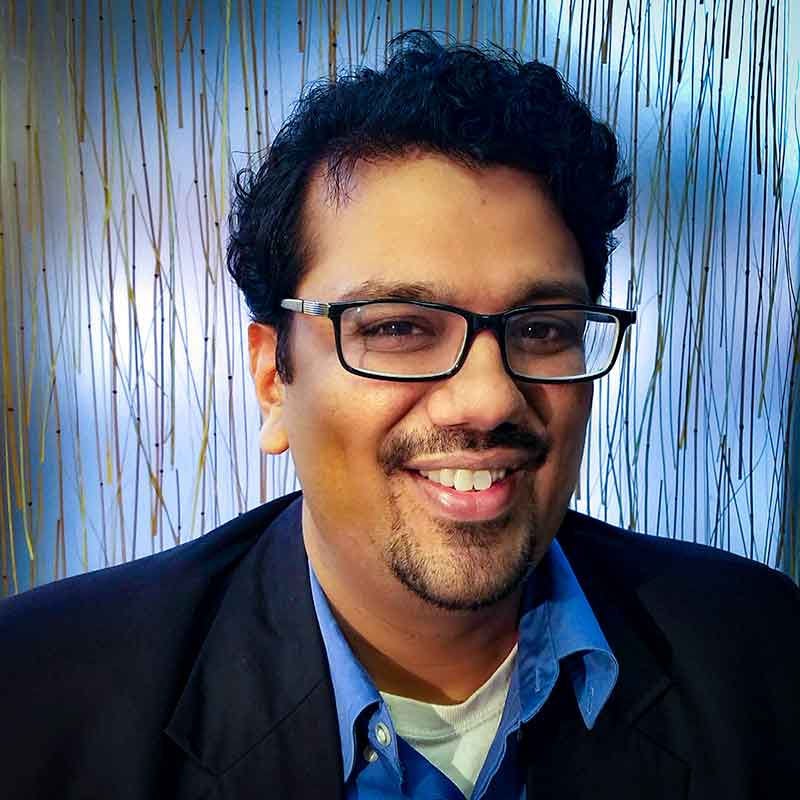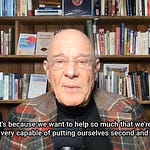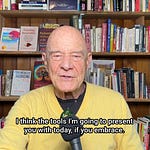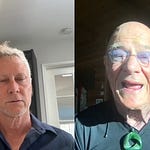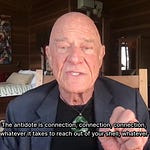What if you were facing a terminal illness, wracked by anxiety and depression, and knew that a safe, promising treatment existed - but was denied to you?
This is the heart-wrenching reality for many of Dr. Sunil Aggarwal's patients. A palliative care physician in Seattle, Dr. Aggarwal is fighting a landmark legal case for the right to treat his dying patients with psilocybin-assisted therapy.
Psilocybin, the active ingredient in magic mushrooms, has shown remarkable potential in easing end-of-life distress.
But despite the "Right to Try" laws passed in over 40 states, the DEA is blocking access - even for those with just months to live.
"We're slowly trying to chip away at a mentality that says there's no way forward except research," Dr. Aggarwal told me. "Psychedelic substances - we already recognize they have great utility. Everybody knows the FDA has said twice that psilocybin is a breakthrough therapy."
In my latest interview, Dr. Aggarwal and I explore:
The anguish of terminal illness and the failure of medicine to adequately address existential suffering
The immense promise of psilocybin therapy to relieve anxiety, depression, and fear of death in the dying
The David vs. Goliath legal battle for patients' "right to try" psilocybin when time is running out
The evolution of psychedelics from counterculture to cutting-edge medicine
The importance of mindful, responsible use of psychedelics in a supportive clinical setting
In a life-or-death struggle that epitomizes the phrase "health is political," Dr. Aggarwal is taking on the DEA to defend his patients' right to access a treatment that could bring them peace in their final days. Eight states and D.C. have filed briefs supporting his case, but the DEA remains intransigent.
"When you are told you have an incurable disease, that all we can do is extend your lifespan for a certain amount of time, the psycho-spiritual toll that places on somebody's mind is very high," Dr. Aggarwal told me.
Some of his patients – desperate for relief from crushing anxiety and depression – seek out psilocybin on the underground market.
"I can offer harm reduction strategies, but I don't think that's good enough," he said. "We should be caring for people a little differently when death is staring them in the face."
Dr. Aggarwal's own journey has taken him from the NIH to NYU to founding an integrative medicine clinic in Seattle. Trained as an MD and PhD in medical geography, he sees access to psilocybin in the context of public health, the environment, and human rights.
"It's heartbreaking that dying patients continue to suffer when they could be getting relief," says Kathryn Tucker, Dr. Aggarwal's attorney and director of advocacy at the National Psychedelics Association. "The DEA has interposed itself to nullify duly enacted state and federal law. It's way out of its lane."
As we wait for a decision from the Ninth Circuit Court of Appeals this summer, Dr. Aggarwal hopes his case can be a tipping point.
"As a society, we spend a lot of time trying to help people live well, but we also should be helping people to die well," he told me. "Psychedelics can remind us there might be a whole other vista beyond our limited vision."
This week, I'm inviting my listeners to share their views:
Should terminally ill patients have the "right to try" psychedelics if they may ease their suffering?
Takeaways
Patients with terminal illnesses often face debilitating anxiety, depression, and existential distress
Psilocybin therapy has shown remarkable potential to alleviate end-of-life suffering in clinical trials
"Right to Try" laws in over 40 states allow access to experimental drugs for the terminally ill, but the DEA is blocking access to psilocybin
Dr. Sunil Aggarwal, a Seattle palliative care physician, is fighting a landmark legal case to win psilocybin access for his dying patients
Some patients resort to underground psychedelics out of desperation; clinical psilocybin therapy would be far safer and more beneficial
The case pits the DEA's scheduling of psilocybin against state laws and patient autonomy at the end of life
Eight states and D.C. have filed amicus briefs supporting Dr. Aggarwal's case, arguing the DEA has overstepped
A summer decision from the Ninth Circuit Court of Appeals could be a pivotal moment for psychedelic medicine
The case highlights the need for a more compassionate, integrated approach to end-of-life care that addresses spiritual and existential dimensions
Responsible, mindful use of psychedelics may help change both how we live and how we approach death
Links and Resources
Dr. Sunil Aggarwal:
AIMS Institute (Advanced Integrative Medical Science Institute)
Organizations & Concepts:
Research & Clinical Trials:
Psilocybin-assisted Therapy for Anxiety in Patients with Life-threatening Cancer
Psilocybin-assisted Group Therapy for Demoralization in Long-term AIDS Survivors
Effects of Psilocybin-Assisted Therapy on Major Depressive Disorder
Psilocybin for Depression and Anxiety in Patients with Life-Threatening Cancer
Media Coverage:
Do Dying People Have a Right to Try Magic Mushrooms? - LA Times
Seattle Doctor Sues DEA, Seeking OK for Psilocybin Use by the Dying - The Seattle Times
Miscellaneous:
Be Here Now by Ram Dass
My Books
Freeing Sexuality: Psychologists, Consent Teachers, Polyamory Experts, and Sex Workers Speak Out
Psychedelic Wisdom: The Astonishing Rewards of Mind-Altering Substances
Psychedelic Medicine: The Healing Powers of LSD, MDMA, Psilocybin, and Ayahuasca
Integral Psychedelic Therapy (co-edited with Jason A. Butler & Genesee Herzberg)

